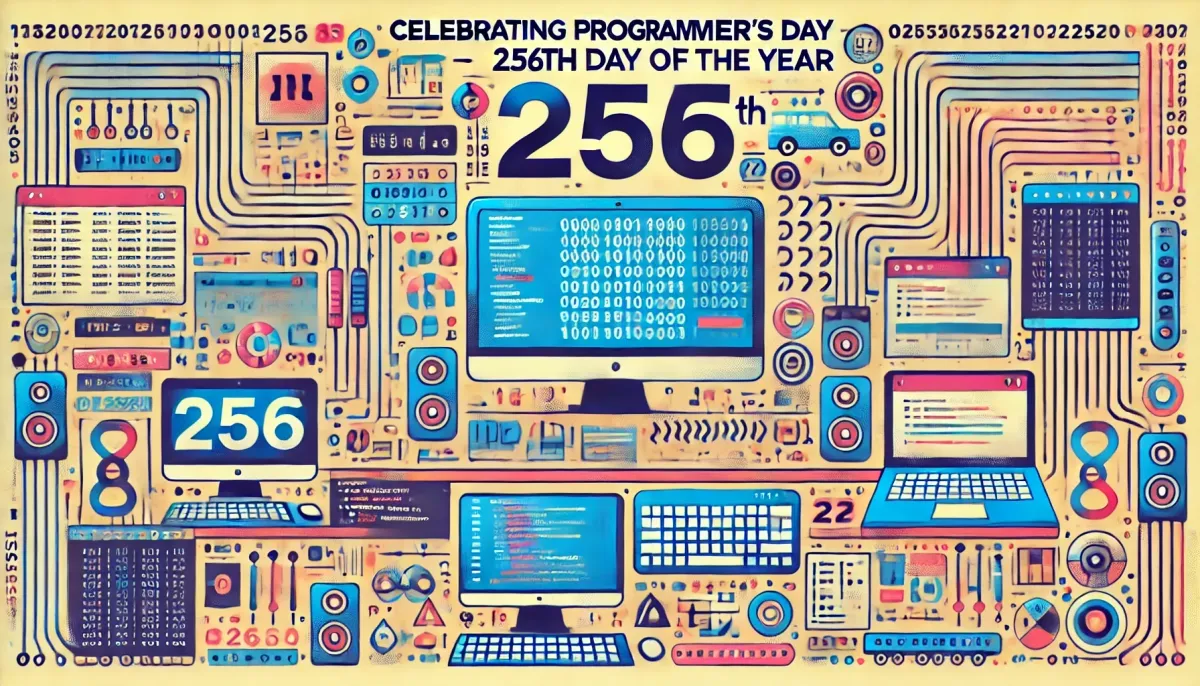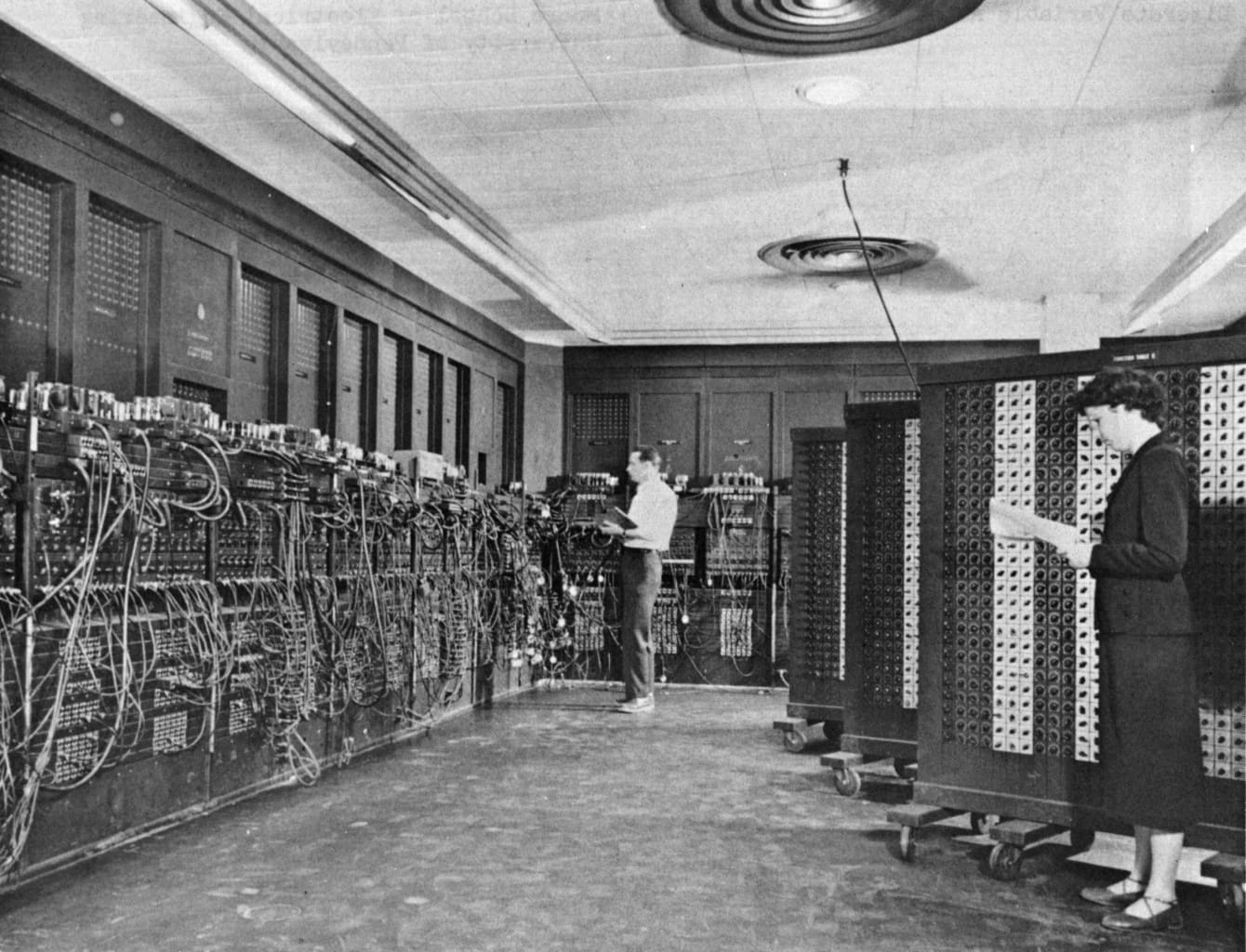Day of Programmer and Other IT Holidays
The date and history of Programmers' Day, as well as other important dates from the world of software engineering.

An Unexpected Discovery About International Programmers' Day
The internet suggests that there is such a holiday as “International Programmers' Day,” celebrated on January 7 each year since 2007. However, there appears to be no actual information about this international holiday. It looks like all articles about it are written by artificial intelligence. Moreover, the date often changes to either September 12 or 13 on the same page that initially mentioned January 7. It's quite the mystery of the number 7, my fellow programmers.
A Brief History of Programmers' Day
Surprisingly, the international programmers' day celebrates are not that international as one might think. The first official holiday known as Programmers' Day appeared in Russia in 2009. According to decree No. 1034 [1], it is celebrated on the 256th day of the year. In leap years, it is on September 12, while in regular ones, it is on September 13.
Before the Russian government and the then president Dmitry Medvedev signed the decree, the holiday existed unofficially in the public domain. Well, like it seems to be in almost all modern world.
It is believed that the first to propose celebrating “Computer Geek Day” was Dmitry Mendrulyuk from “Computerra” journal in 1996 [2]. At that time, the 256th day of the year had not yet been chosen for the celebration, and the first Friday of September was suggested. This could have been the 244th or the 251st day of the year. Again, it depended on was it a leap year, or a regular year. Interestingly, this holiday was proposed to be called “Clean Friday”. And the topic of cleanness is now highly popular in software development.
The official recognition of Programmers' Day was requested in 2002 by employees of the web studio “Parallel Technologies”, Russian programmers Valentin Balt and Michael Cherviakov. Interestingly, the text of their request (in Russian) did not specify an exact proposed date.
But Why the 256th Day of the Year?
For those involved in programming, this isn't a question, but it's worth explaining to other readers. Computers work with units of information: bits, bytes, and so on. A bit can be either 0 or 1. This is the essence of the binary code used in computers.
A byte consists of 8 bits. The eight bit byte now can represent much more distinct values than just 0 or 1. Because of the combinatorics, there are 256 ways to arrange the bits in a byte. This number represents the number of distinct values, as well as the highest power of two that you can have with eight bits. This is why the 256th day of the year is celebrated.
Are There Any Other Holidays?
The computer programmers don't have many holidays yet. E.g., I haven’t heard of any attempts to celerate dates dedicated to specific coding languages. Nevertheless, here are several important dates to celebrate in the digital world.
So, the List of Important IT Dates and Holidays

- February 14 — Presentation of the first general-purpose programmable electronic computer, ENIAC I to the public. Its essential role is vivid these days.
- March 31 — international backup day. This holiday even has its website. It explains that March 31 was chosen to serve as a humorous reference to April 1, April Fool's Day [3]. Yes, when the data is gone, you feel like a real fool.
- April 4 — International Internet Day. On this day in 636, Saint Isidore of Seville, the patron saint of students, the internet, and every existing web page, passed away. There's also some humor in the chosen date — 4/04 resembles the HTTP 404 error, which users see when a page is not found.
- April 27 is Graphic Design Day. Although graphic design is more about the physical world, it is also respected in the IT world. After all, our design grew from there. Without graphic design, the path to becoming a web designer would be completely different.
- May 17 — another Internet Day. Apparently, the original holiday couldn't be found on 4/04. This day marks the approval of the WWW standards, allowing the creation of web pages. Moreover, on this day, the World Telecommunication and Information Society Day is celebrated under the UN's patronage.
- May 31 — Web Designer’s Day. Information about the holiday on the internet is so vague that it again resembles generated content. An even more mysterious holiday is UI Designer’s Day. It doesn’t even have a date, although people claim it is celebrated.
- The last Friday of July — System Administrator Appreciation Day. Without these brave folks, a software developer's life certainly wouldn't be a holiday. Something would always be breaking, be it a peripheral device or the network itself. A very necessary holiday, unofficially celebrated in many countries.
- August 31 — Blog Day. It’s an unofficial holiday. It’s celebrated on this day because the word "blog," especially styled as "BlOg," resembles the numbers 3108 if you squint.
- September 5 — The first launch of business software. In 1951, the LEO computer of the British tea and confectionery company J. Lyons and Co. performed its first calculations to determine the cost of ingredients in bread and cakes [4]. As a tea enthusiast, I'm delighted by this achievement in the tea industry. Why don’t we see J. Lyons and Co. company today among the tech companies?👀
- September 9 — Tester's day. On the 9th of September 1947, Grace Hopper documented an error in Mark II computer [5]. The error was caused by a moth trapped in a relay. She wrote the following: “First actual case of bug being found”. This action is thought as the official acknowledgement of the word “bug” in the computer engineering.
- October 24 — alternative day of the programmer in China [6]. October 24 can also be 10/24. The number 1024 is 2 to the power of 10, which is why this date for a programmer's day was chosen.
- November 30 — International Information Security Day.
- December 10 — The birthday of Ada Lovelace, the daughter of English poet George Byron. She is considered the first programmer in history, even though computers didn't exist at that time. She wrote her programs for Charles Babbage's analytical engine [7].
Conclusion
It's clear that programming is still young. The number of holidays in it is small, and many of the existing ones have yet to gain recognition. Definitely, we need holidays for users of different programming languages, creators of mobile applications, product owners, Scrum masters and other professionals. If we start counting different programming libraries, then we can start to celebrate programmers' day every day!
Speaking seriously, programming has already managed to change our daily lives several times in many aspects in its short history, and much more is yet to come!
Don’t forget to congratulate your software engineering colleagues! It’s quite possible that they influence your everyday life more than you think.
If you recognize that this article is missing any important holidays, feel free to write in the comments here, on Reddit, Hacker News or in Threads. While writing this material, I couldn't find the exact number of professional holidays for IT workers, but I'd be happy to add what I've missed.
Did you enjoy this list of programmer holidays? Subscribe to the “So List” blog — there are many more amazing lists and checklists in the world. You'll also learn how to solve many issues with these simple yet powerful tools before even involving technology.
List of Links
[1] “Decree of the President of the Russian Federation No. 1034 dated 11.09.2009” (in Russian) from the “President of Russia” website.
[2] “Will Programmer's Day Come?” (in Russian) from “Computerra”.
[3] “FAQ” on the “World Backup Day” website
[4] “LEO” from Wikipedia.
[5] “Bug (engineering)” from Wikipedia
[6] “Chinese Programmer's Day” from Wikipedia.
[7] “Ada Lovelace” from Wikipedia.



